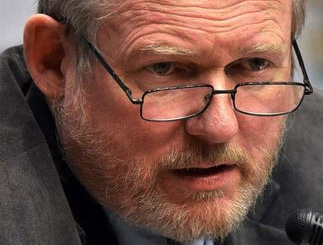PRETORIA, South Africa, March 12, 2018/APO: African Ministers of Trade have considered and approved establishment of the African Continental Free Trade Area (AfCFTA).
The Agreement Establishing the African Continental Free Trade Area was Concluded by African Union Ministers of Trade Meeting in Kigali, Rwanda
The envisaged AfCFTA will offer an opportunity to create larger economies of scale, a bigger market and improve prospects of the African continent to attract investment according to a statement released by the South African Government in Pretoria.
The Statement said South Africa is committed to the coordinated strategy to boost intra-Africa trade and to build an integrated market in Africa which will serve a population of over 1 billion people with a GDP of approximately US$2.6 trillion.
 The South African Minister of Trade and Industry, Dr. Rob Davies and Deputy Minister Mr. Bulelani Magwanishe arrived in the country after attending the African Union Ministers of Trade (AMOT) meeting in Kigali, Rwanda.
The South African Minister of Trade and Industry, Dr. Rob Davies and Deputy Minister Mr. Bulelani Magwanishe arrived in the country after attending the African Union Ministers of Trade (AMOT) meeting in Kigali, Rwanda.
The African Ministers of Trade considered and approved, for submitting to the Extra-Ordinary Summit of the African Union (AU) Heads of State and Government, the Agreement Establishing the African Continental Free Trade Area (AfCFTA) as well as the Protocols on Trade in Goods and Trade in Services that will form part of the Agreement.
The Ministers also approved a Work Programme for concluding the outstanding issues for implementation that will start after the Extra-Ordinary Summit of the AU Heads of State and Government that will take place on 21 March 2018 in Kigali, Rwanda.
The negotiations were launched in Johannesburg in June 2015. The AU Assembly of Heads of State and Government held in January 2018 in Addis Ababa, Ethiopia, agreed to hold an Extraordinary Summit on 21 March 2018 to consider the AfCFTA legal instruments and Declaration launching the Agreement Establishing the African Continental Free Trade Area.
The AfCFTA is being pursued under the development integration approach. This combines market integration with industrial and infrastructure development to address Africa’s productive capacity and supply side constraints, promote the diversification of Africa’s export base from dependence on raw materials to value-added products, as well as alleviate the chronic infrastructure deficit in Africa.
The AfCFTA is also expected to facilitate the movement of goods and services among African countries. It will also result in harmonisation of customs documentation and processes thus enhancing trade facilitation
In a separate related incident back in 2015, African leaders from 26 countries signed a historic agreement to create the continent’s largest common market in what was seen as a leap to strengthen intra-African trade,
The leaders on Wednesday, June 10, 2015, signed the historic, 26-nation free-trade pact to create a common market spanning half the continent, from Cape Town in South Africa to Cairo in Egypt.
The deal on the Tripartite Free Trade Area (TFTA) is the culmination of five years of negotiations to set up a framework for preferential tariffs easing the movement of goods in an area that is home to 625-million people.
ALSO READ: Dump EPAS in favor of intra-African trade
Analysts said the pact would have an enormous impact on African economies, which despite growth still only account for about 2% of global trade.
The deal was envisaged to integrate three existing trade blocs – the East African Community, the Southern African Development Community and the Common Market for Eastern and Southern Africa (Comesa) – whose countries have a combined gross domestic product (GDP) of more than $1-trillion (€885-billion).
Members of the three blocs range from relatively developed economies such as South Africa and Egypt to countries such as Angola, Ethiopia and Mozambique, which are seen as having huge growth potential.
“What we are doing today represents a very important step in the history of regional integration of Africa,” Egyptian president Abdel Fattah al-Sisi said. World Bank president Jim Yong Kim said the TFTA would allow Africa “to make tremendous progress and move the entire continent forward. Africa has made it clear that it is open for business.”
“The ultimate goal is to ensure easy movement of goods in these countries without duties,” said Peter Kiguta, director general of the East African Community.
World business leaders welcomed the TFTA, with experts saying that only 12% of Africa’s trade is between countries on the continent.
The United Nations Conference on Trade and Development said in 2013 that if Africa is to boost its intra-continental trade, it must focus on creating “more space for the private sector to play an active role”.
Analysts say although the continent’s growth over the past 15 years outstripped global GDP expansion by nearly three percentage points, falling commodity prices, power shortages, political instability and corruption are holding back its economies.
“What we have realised is that having one trade regime is better than the costly multiple trade regimes,” said Comesa secretary general Sindiso Ngwenya, who led negotiations among the three blocs.




